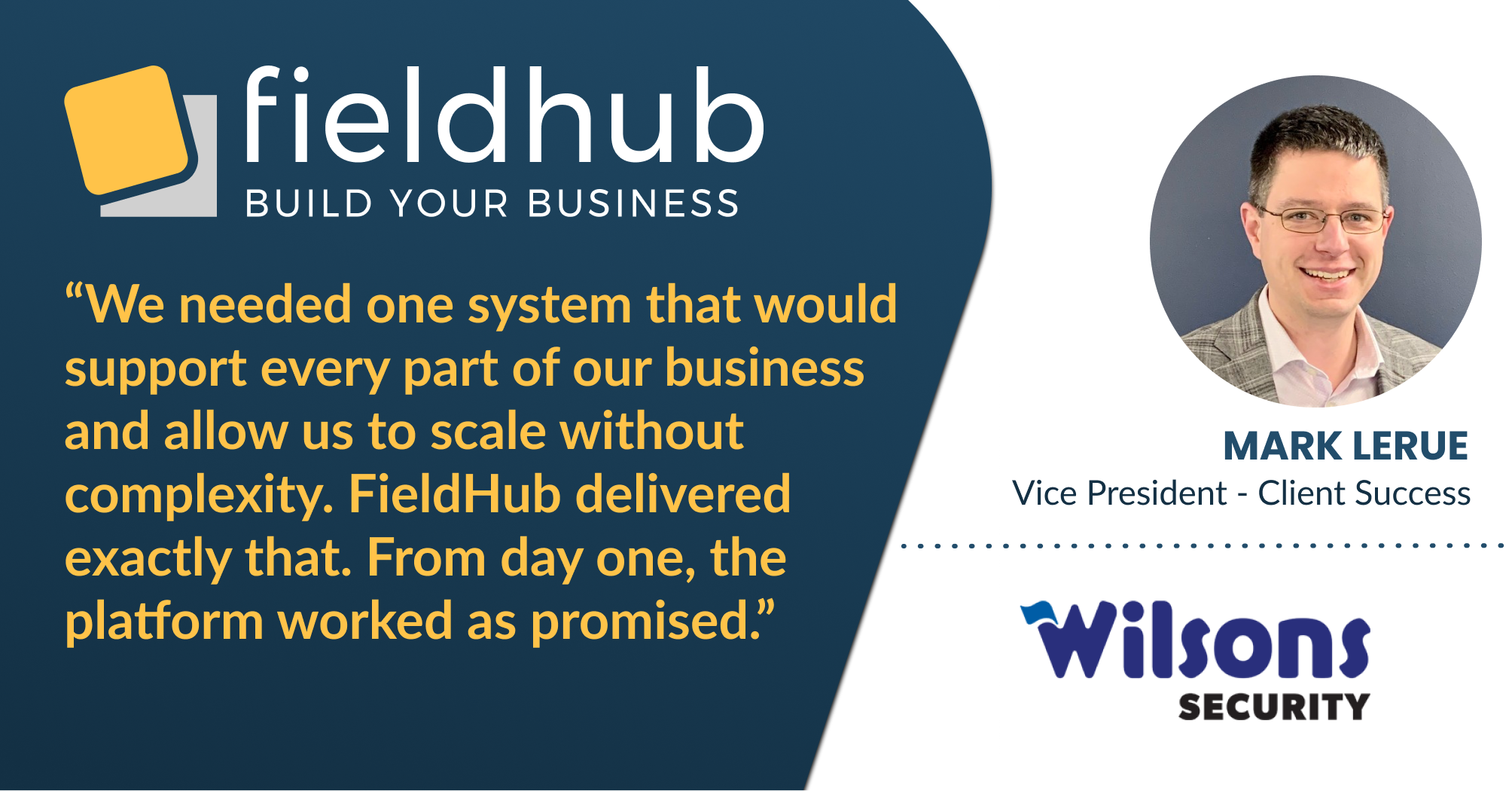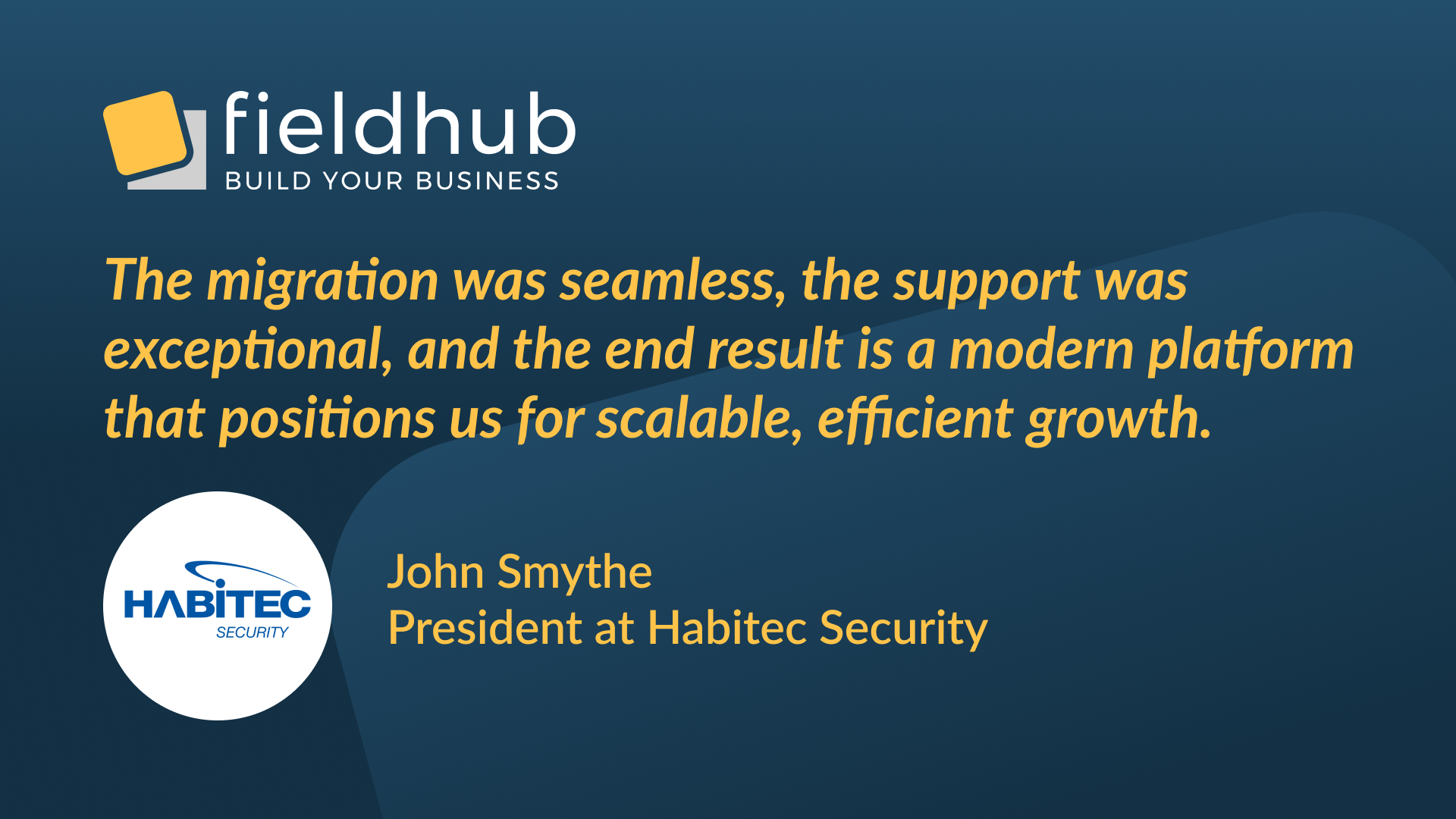resources

Choosing the right merchant service provider for credit card and ACH processing can impact your customer experience and your bottom line. In this post, we walk through some factors to consider when selecting your merchant service provider.
PCI is the Payment Card Industry Data Security Standard for information security. Due to the time-consuming nature of seeking PCI compliance, you should avoid systems and workflow where you need to bear responsibility for PCI compliance on your office workstations and internal processes. Specifically, you should partner with vendors that handle PCI compliance within their own framework.
This is best addressed by passing sensitive (i.e. PCI) credit card information directly to your processor’s servers using iFrames. Avoid taking credit cards by email, paper, other other methods that would result in sensitive information being stored in your computers, mobile devices, or file cabinets.
FieldHub works with PCI-compliant merchant service gateways and providers so that sensitive financial information is never stored on FieldHub servers or your computers.
All sensitive information is “vaulted” with your merchant service gateway provider. A reference token is kept with your customer records that may be used to charge the vaulted card on file.
While FieldHub can provide turn-key merchant services with competitive pricing and features, you may want the option of choosing your own merchant service provider — perhaps due to a banking relationship that has favorable terms.
Through our Merchant Gateway service you can use nearly any bank or merchant provider. This flexibility will give you the best pricing leverage.
FieldHub also provides the option for a “Card Account Updater” feature, where your credit cards on file for recurring payments will be automatically updated if the customer’s card expires or is replaced. This service minimizes failed transactions, gaps in payment, and additional effort by your customer to update the card on file.
FieldHub will automatically retry cards on file and will email the customer requests to update the information when a payment fails, but this service significantly reduces the need to reach out to the customer.
Since you don’t want to store any of the sensitive credit card data, it is important you have the flexibility to change merchant providers without having to re-collect that data all over again. Most credit card merchants will transfer the data between merchant providers without exposing the sensitive data to you or FieldHub.
Make sure to verify, in writing, that your merchant service provider will transfer data out if you need to for any reason.
Know what your merchant service provider’s chargeback policies and procedures are. If you have a customer that requests a chargeback, you want to be able to resolve it as quickly as possible.
Some merchant processors take months to process chargebacks and may not give you the opportunity to make your case. Or, you may authorize the customer refund, but the merchant service provider takes months to process the refund reflecting poorly on you or resulting in your being out of pocket for a refund by check and the processor providing a duplicate refund months later out of your pocket.
When a merchant services provider issues a merchant ID (MID) to a Merchant of Record (MOR) they will generally go through an application process to understand the type of transactions and risk profile of those transactions. An account that goes through this process is called an “underwritten merchant account,” and is the most common type of credit card merchant account. It can take a week or two to put this sort of merchant account in place. Businesses with bad credit ratings or excessive chargeback histories may not qualify for this sort of account.
Alternatively, payment processors such as Stripe do not require underwriting as they are acting as an intermediary. While this can streamline the process and reduce the risk of being rejected as a merchant, there is a tradeoff:
a non-underwritten merchant account is generally going to be more expensive, and you may see more attempted charges declined since the processor is taking on more of the chargeback risk and may be more conservative. This may come into play when a large charge is attempted and can result in unexpected delays in funds being deposited to your account.
Also, with non-underwritten accounts, you may pay more for aggregate services, relative to underwritten services. Processing fees for Stripe and services like it are generally 2.9% plus $.30 per translation whereas FieldHub’s fees start at 2.7% and $.10 per transaction.
FieldHub recommends CardConnect, a provider of underwritten merchant services, but also supports Stripe for businesses who find their offerings and features to be a good match.
ACH processing charges a customer’s bank account directly. This significantly reduces the cost of transactions, eliminating the percentage fee (or capping it) at a very low rate relative to credit card processing.
Stripe (and many other processors) requires a deposit verification process where two small deposits are made to your customer bank account. The customer must then verify the deposit amounts in order for their payment account to be set up.
This process inherently takes days and will likely require onerous intervention from your staff.
FieldHub’s standard ACH processor, which is underwritten and therefore requires an application process, does not require the deposit certification process. In this case, a customer can update their ACH information with your business and the ACH processing can take place immediately.
Contact FieldHub’s customer service team to identify and implement the best payment strategies for your business.
Photo by rupixen.com on Unsplash


